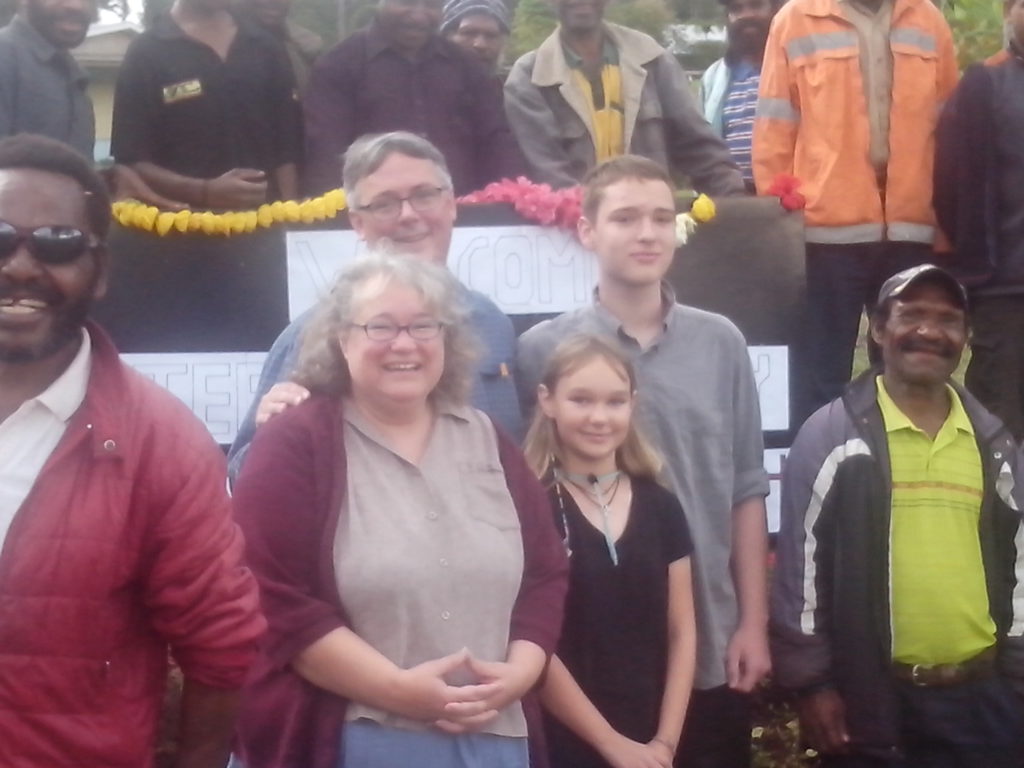
“Five ducks are sitting on a pier, and one of the ducks jumps off into the water. How many ducks are left?”
For Christian missionary Tim Brannagan, the correct answer isn’t “four.”
“An Ethopian would say zero, because if one of the ducks jumped off, the rest would follow,” Brannagan said.
Brannagan and his wife, Nancy, shared stories from nearly 10 years spent abroad in Ethiopia as Christian missionaries. They found that spreading the gospel hinges on embracing the country’s cultural narrative to form relationships.
Moving to Addis Ababa, the capital of Ethiopia, with Nancy and their three young children in 1995, Brannagan mentored Ethiopian pastors as the academic dean at Tale Hewot Seminary.
Brannagan discovered that the Western classroom educational model failed to resonate with his students and instead found that his most effective teaching moments came through storytelling and discussions over tea.
Brannagan and his family moved back to Hillsdale, Michigan, where his two children graduated from Hillsdale College in 2007 and 2010 respectively, but his mission work continues: He now shares a story-centric approach to spreading the gospel as the Director of Story-centric Strategies for Evangelical Free Church of America, a national church organization with nearly 550 international missionaries. Research demonstrates that more than 80 percent of the world prefers to learn through narrative, Brannagan said.
He illustrated the narrative approach by telling the story of a public official in Nigeria who was running for reelection and accused of laundering public funds to his family and friends by an opposing candidate. Responding to the accusation, the public official said, “You’re right. I keep the money for myself, friends, and clan, and now I’m ready to serve you. If you elect this other candidate, he’ll do the same thing I did.”
Brannagan said that the people re-elected the current official.
“In Africa there is a strong group mentality that predominates individual justice. By displaying the injustice of nepotism within the context of a story, there is a greater chance that the student’s response is, “I don’t want to be that person. How can I be sure that I won’t turn out that way?’” Brannagan said.
Although they landed in different continents than Brannagan, two current Hillsdale students also experienced the importance of understanding the cultural narrative to build relationships and spread the gospel.
The son of a Lutheran Church-Missouri Synod pastor, senior Christopher Horn moved to Papua New Guinea in 2012 where his father served as an administrator at a Lutheran seminary for two years.
By observing his father step into a leadership role as a pastor at the local Lutheran seminary, Horn saw the challenges for the missionary in a culture based on mutual favors.
“It’s the ability to balance understanding in the importance of relationships and how crucial they are to get anything done, but also prioritizing fidelity to the gospel message,” Horn said.
Horn spent six months becoming fluent in the Papua New Guinean dialect, Tok Pisin, and as a high school senior, strived to fulfill his vocation as a son and student. He said he tried to help in whatever ways he could, carpentry projects, remodeling the seminary workshop and a kitchen, and painting one of the missionary homes.
“When you’re there for years at a time, it’s more about living together, eating together, and going to church together. It’s not about the projects that you write home about in your missions reports — that’s short term missions — long-term missions is about being with each other relationally,” Horn said.
Horn met senior John James before coming to Hillsdale through high school Lutheran retreats. James spent five months in India and then three months in Sri Lanka immediately prior to his freshman year.
Also a son of a Lutheran pastor serving at a seminary abroad, James found an avenue to build relationships through music. A cellist and mandolin player, James would accompany his father’s congregation alongside his brother who played the violin and banjo.
“The best part of my experience was seeing the catholicity of Christianity and worshipping with the communion of saints overseas. I also found that Indian people are super friendly,” James said.
One day James found himself sitting in the back of a car with one such friendly Indian while driving to a distant church with his father.
Finding that James was well-learned in Lutheran hymns, the Indian sang a series of hymns as a game to see how many James knew.
“When he found that I recognized one of their foreign hymns, he just kept singing at me,” James said.
Like Horn, James experienced the tension of building relationships without compromising the gospel message to adapt to the particular culture.
“I was constantly trying to soak in the culture and mark differences and similarities,” James said. “The liturgy resonated with us and the Christians there in a very natural way. It is not a Western thing to return constantly to God’s promises in his word and sacraments.”

